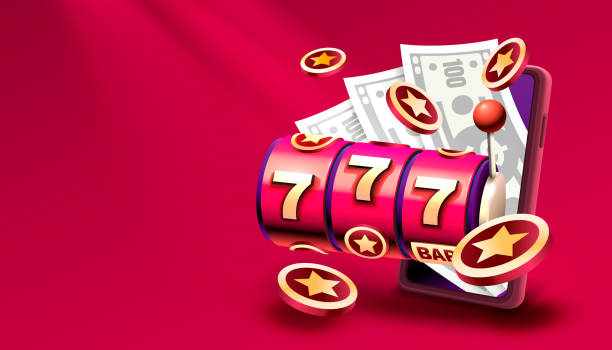
Due to the increase in access to gambling options through online platforms, there has come a greater awareness of the risks of playing at sportsbooks and casinos. The history of gambling goes back over millennia, but thanks to greater modern research, there is now excellent insight into how gambling affects the human brain.
The science behind how gambling affects everything from the dopamine reward system to impaired decision-making indicates that the psychological impacts of the practice are far-reaching. From the study of short-term effects to the exploration into longer-term impacts of gambling, reading into this area can be eye-opening. Here, we look at some of the key elements of the psychology of gambling.
Growing Research
Thanks to the explosion of online platforms, placing a bet has never been easier. Gambling used to be a niche area experienced only in casino establishments or by purchasing tickets for national and provincial lotteries. Both of those often took a lot of planning to get done physically.
But since the turn of the century, the number of online platforms has expanded exponentially, which has opened the doors of gambling to more and more people. The immediate concern for a lot of people is the risk of underage gambling, with young boys and men being particularly more vulnerable to addiction, according to research.
The inherent risks of gambling have always been there, long before the modern wave of online sites, with the main one being addiction. It is something that a lot of people don’t like to talk about, but it’s very real, just as addiction to cell phones and traditional video gaming are also very real things. However, the risk of gambling is seen as greater because of the financial burdens that can be incurred.
Even the differences in how it impacts different demographics are fascinating, with younger players being the most at risk due to lesser developed emotional response centres and less developed decision-making abilities. People with lower incomes are also more vulnerable because they have much more to gain from hitting a big win.
Responsible Gambling
Due to the risk of addiction, there is a big push towards reminding people to play responsibly and to keep it an enjoyable hobby to avoid any slippery slopes to problems. This is completely possible, and a lot of people do it responsibly. In Canada, people, on average, only spend $6.75 per month on gambling.
It’s reported that there are 19.3 million active gamblers in the country, and only 3% report spending more than $100 per month on it. Naturally, income levels do affect gambling habits and those spending levels.
83% of Canadians think that the responsibility for controlling gambling habits rests on the shoulders of the individuals. But this is a tricky area, and the effects of gambling on the brain make it more complicated. The brain doesn’t want any addictive behavior to end. It wants to enforce it because of the internal pleasure that it brings.
So, more often than not, it can take an external influence to help someone out of any difficulty. But how does the brain allow a person to get to such a difficult place in the first place?
Key Factors In Gambling Psychology
The volume of research into how the brain handles gambling is broad and can be broken into several specific areas. The following are just a few key takeaways. For further exploration, it is also worth looking at the article Psychology of Gambling, Written and Published by Play Casinos.ca1, which takes readers further into modern gambling and why people engage in it.
The Reward System
The brain likes rewards and stimulations that typically come from pleasurable things. The reward centre of the brain releases dopamine as a reaction to something like winning a hand of blackjack at a casino. Once the association between rewards and that good feeling from the neurotransmitter is strengthened, it craves more.
This happens in all areas of life and is how habits are formed, such as constantly needing immediate stimulus rewards from checking social media every five minutes or through success in a video game like a map of League of Legends2. The associations of a dopamine reward in gambling, however, are a lot more intense than in video gaming, for example.
When gambling, even the thought of a win from the next spin of a slot machine can stimulate the release of dopamine. In mid-spin, the brain will get its rush due to the anticipation of hitting a success. Over time, the brain will crave more and more of those dopamine hits to increasingly get the same degree of “high” that it did in the first place, and that is when gambling addiction can become a problem.
An excellent way to think about the need for these dopamine spikes is by breaking any session down into its individual components. For example, every spin of a slot machine comes with the potential of a win. The uncertainty of whether it will come or not just adds fuel to this fire, and even when a near-miss happens, the brain will get some reward from it, reinforcing wanting to play on and on.
A Desensitized External World
Over time, exposure to gambling will mean that the brain becomes desensitized to other external things simply because it knows exactly where it can get its “highs,” so why bother doing anything else that could be more mundane and not be anywhere near as rewarding, chemically?
A level of conditioning happens because of the pleasurable feelings that the brain makes and desires. It can pull a person away from external activities, where things feel unstimulating because they’re not gambling.
Reading a book, making the bed, or hopping online for a video gaming session can feel like dull and pointless exercises. That feeling and response where nothing else will deliver any levels of satisfaction or excitement, like gambling, is a major red flag that there is a problem, and it can lead to a person being withdrawn from life.
Stresses On The System
Due to the nature of gambling, where risks are not always going to end in a positive outcome for a player, it can put a huge stress on the brain and, therefore, the entire body. Losing isn’t fun, and any extended sequence of losses can be taxing for a player.
Those stresses can turn into emotional reactions, which happen in the amygdala. It’s there where fear and anxiety are born, and with exposure to long-term gambling habits, changes can happen in this busy, emotional processing center.
The new responses that are created then create something of a perfect storm, where the brain turns to even more gambling to try and escape those feelings of anxiety because it will know that any eventual win will likely ease it. It’s the quickest way out of the spiral.
Tricking Itself
A fascinating area of how the brain handles gambling3 comes through cognitive distortions, which is sort of like the brain lying to and tricking itself. Adopting unrealistic biases as a normal thought can badly disrupt the prefrontal cortex, where all the decision-making goes on.
Gambler’s fallacy is a big manifestation of this, where expectancy goes off the rails. A common gambler’s fallacy is that the player is due a win after a streak of losses. Most gamblers know that the previous result of a spin on a slot machine or roulette table has nothing to do with the outcome of the next one.
But despite knowing this, when the brain starts its trickery on a poor run of luck, the fallacy becomes more and more believable, and those distortions can be hard to snap. This tends to lead to a player taking more and more risks because of falling into its trap.
One of the most common ways this shows up in gambling is by players chasing losses due to the gamblers’ fallacy. With a clear head, a gambler on a losing streak would likely walk away, but the brain is still on that “give me dopamine” quest. It’s been firmly conditioned to get pleasure from the anticipation of winning, so it wants the player to sit there and gamble more.
In Summary
The brain craves dopamine and will do whatever it can to get it. This is why gambling can lead to compulsive behavior, and it can get to the point where the player just doesn’t have control over what the brain is doing, as much as they may want to, and just continue to make impaired decisions.
There is help available for gambling addiction, and it’s worth reaching out to organizations that support conquering the habit and any that enforce positive mental wellness.
People can turn to gambling for an escape from the stresses of everyday life, for a bit of casual gambling fun and stimulation, and as long as things are budgeted for and controlled, it is a legitimate pastime. However, it’s good to be aware of what is happening in the brain, and anytime anything like stress starts to creep into a gaming session, that’s a big signal to walk away.
- Psychology of Gambling, Written and Published by play casinos.ca
- How to fix Avast blocking League of Legends, published by gamefallout.com
- How gambling affects the brain and who is most vulnerable to addiction, published by apa.org
- Gambler’s fallacy: Overview and Examples, Written by Will Kenton, Published by Investopedia.com





